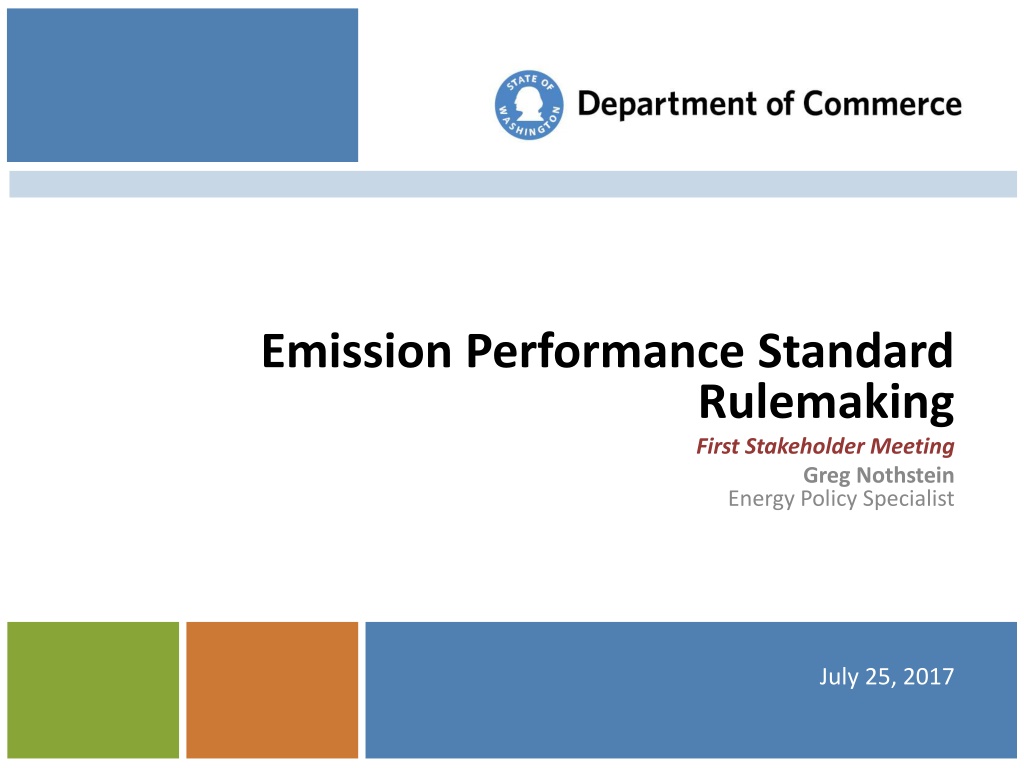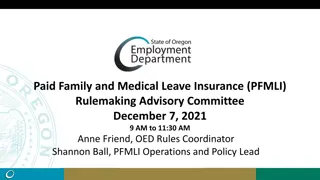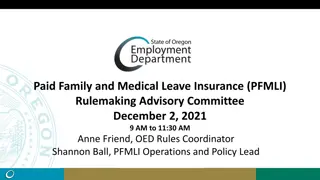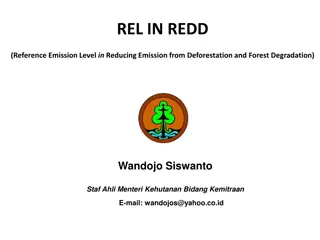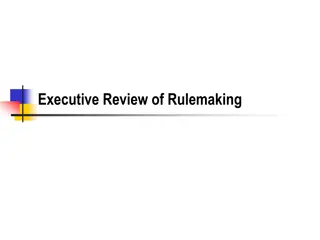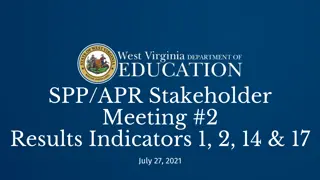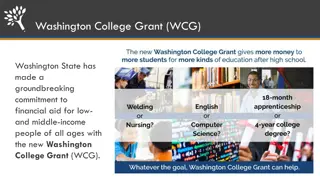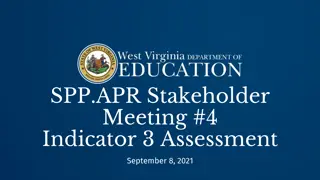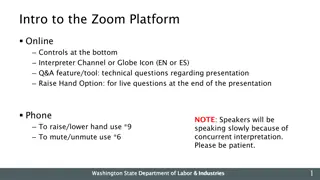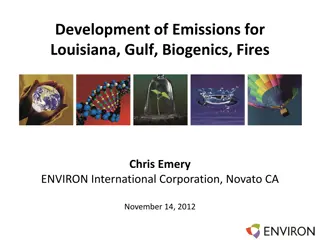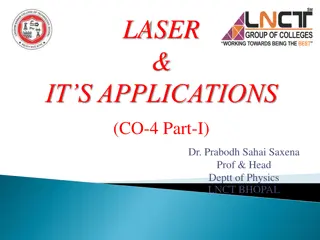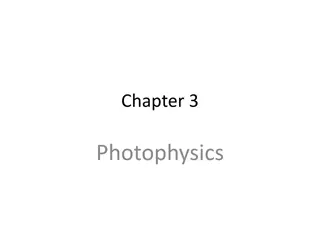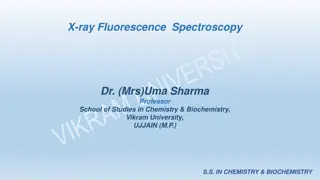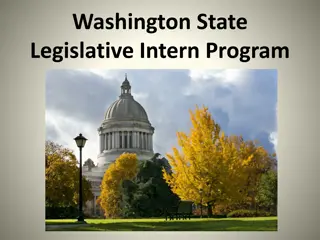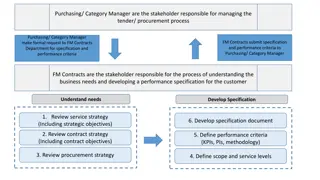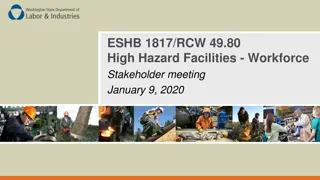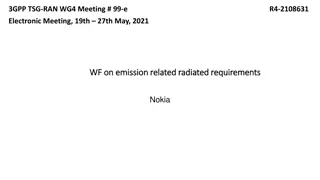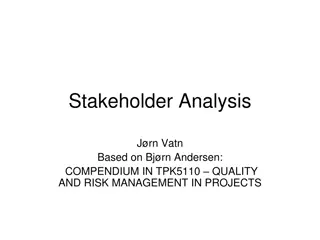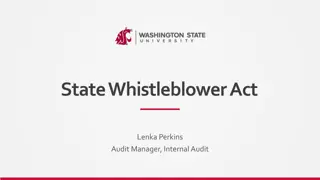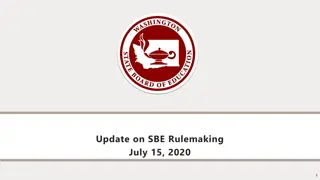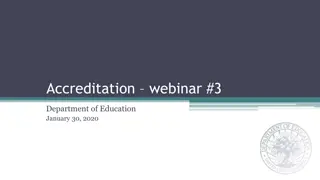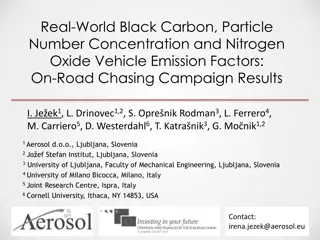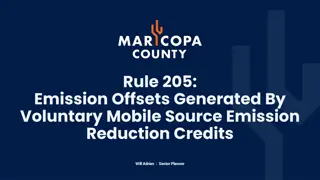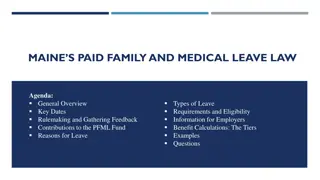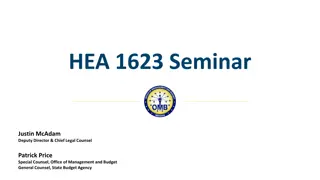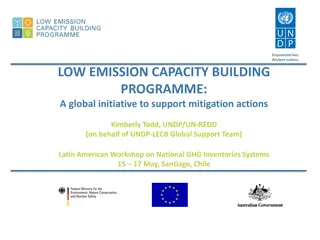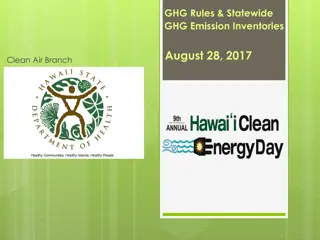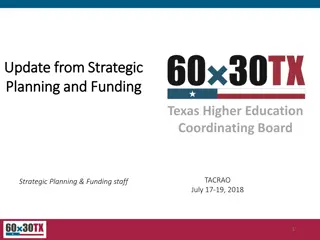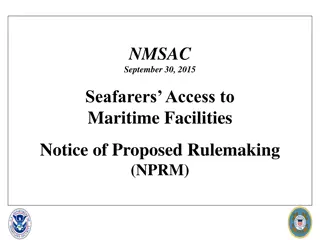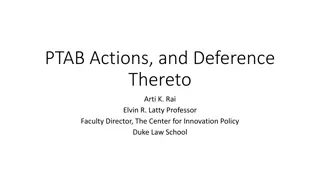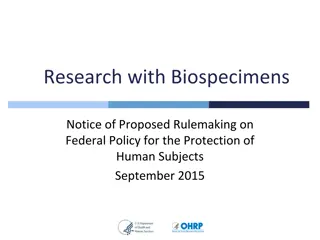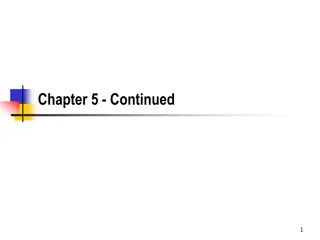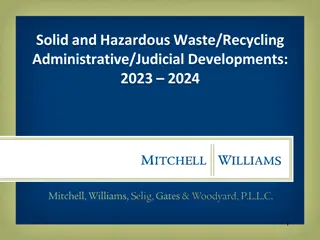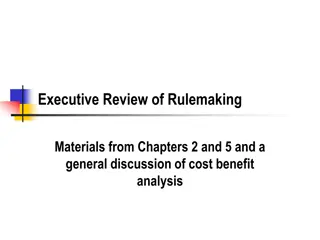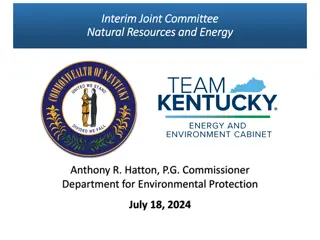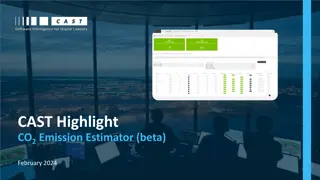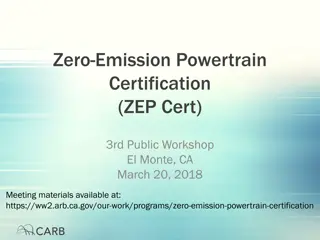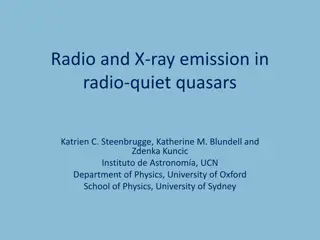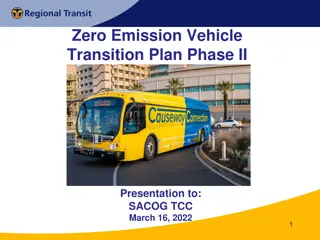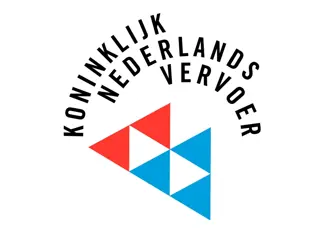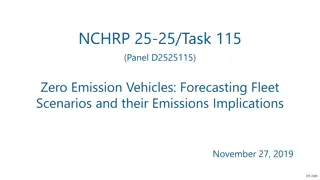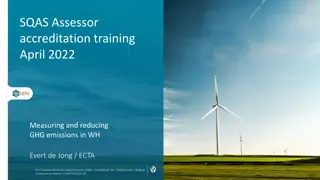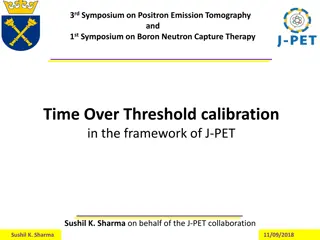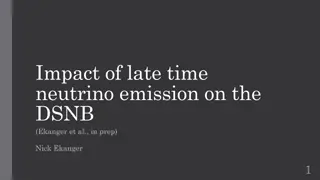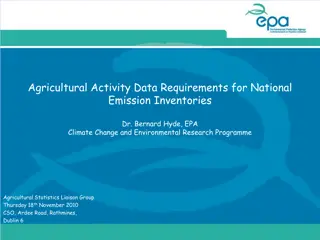Washington State Emission Performance Standard Rulemaking Stakeholder Meeting Overview
This document provides detailed insights into the first stakeholder meeting regarding the Emission Performance Standard Rulemaking in Washington State. It covers key agenda items, reviews of RCW 80.80 GHG Emission Performance Standard, definitions related to CCCT and baseload electric generation, and considerations for cost and reliability impact. The information sheds light on the regulatory framework and processes involved in setting emission standards for power plants.
- Washington State
- Emission Performance Standard
- Rulemaking
- Stakeholder Meeting
- Greenhouse Gas Emissions
Download Presentation

Please find below an Image/Link to download the presentation.
The content on the website is provided AS IS for your information and personal use only. It may not be sold, licensed, or shared on other websites without obtaining consent from the author. Download presentation by click this link. If you encounter any issues during the download, it is possible that the publisher has removed the file from their server.
E N D
Presentation Transcript
Emission Performance Standard Rulemaking First Stakeholder Meeting Greg Nothstein Energy Policy Specialist July 25, 2017
Agenda Introductions Review RCW 80.80 GHG Emission Performance Std. 196-24 WAC Review 2012-13 rulemaking Technical group meetings Survey and EPS calculator development Rulemaking timeline Adjourn Washington State Department of Commerce
RCW 80.80 Greenhouse Gas Emissions Review of Key Sections RCW 80.80.010: Definitions RCW 80.80.040: Sub section 11 review of cost and reliability impact, Dept. Commerce lead agency RCW 80.80.050: Survey of new, commercially available and purchased CCCTs RCW 80.80.080: Greenhouse gas emission performance standard - Review
RCW 80.80.010, some definitions Combined-cycle natural gas thermal electric generation facility" means a power plant that employs a combination of one or more gas turbines and steam turbines in which electricity is produced in the steam turbine from otherwise lost waste heat exiting from one or more of the gas turbines. (referred to as a CCCT) "Baseload electric generation" means electric generation from a power plant that is designed and intended to provide electricity at an annualized plant capacity factor of at least 60 percent.
RCW 80.80.040 (11) cost & reliability consideration (11) In adopting and implementing the greenhouse gas emissions performance standard, the department of commerce energy policy division, in consultation with the commission, the department, the Bonneville Power Administration, the Western Electricity Coordinating Council, the Energy Facility Site Evaluation Council, electric utilities, public interest representatives, and consumer representatives, shall consider the effects of the greenhouse gas emissions performance standard on system reliability and overall costs to electricity customers.
RCW 80.80.050, 5-year CCCT Survey The energy policy division of the *department of community, trade, and economic development shall provide an opportunity for interested parties to comment on the development of a survey of new combined-cycle natural gas thermal electric generation turbines commercially available and offered for sale by manufacturers and purchased in the United States to determine the average rate of emissions of greenhouse gases for these turbines. The *department of community, trade, and economic development shall report the results of its survey to the legislature every five years, beginning June 30, 2013. The *department of community, trade, and economic development shall adopt by rule the average available greenhouse gases emissions output every five years beginning five years after July 22, 2007.
RCW 80.80.080, EPS 5-year Review For the purposes of RCW 80.80.040 through 80.80.080 and 80.70.020, the department (Ecology), in consultation with the *department of community, trade (Commerce), and economic development energy policy division, the energy facility site evaluation council, the commission (UTC) , and the governing boards of consumer-owned utilities, shall review the greenhouse gases emissions performance standard established in this chapter to determine need, applicability, and effectiveness no less than every five years following July 22, 2007, or upon implementation of a federal or state law or rule regulating carbon dioxide emissions of electric utilities, and report to the legislature.
Ch. 194-26 WAC: GHG Emission Performance Std. Average available greenhouse gas emissions output The energy policy division of the Department of Commerce has surveyed new combined-cycle natural gas thermal electric generation turbines commercially available and offered for sale by manufacturers and purchased in the United States, and finds the average rate of emissions of greenhouse gases for these turbines to be 970 pounds per megawatt-hour.
WAC 196-24, Current EPS and reported emissions Current EPS: 970 lb./MWh Average Reported Emissions (2010): 14 Northwest CCCTs: 949 lb./MWh Excluding two highest: 875 lb./MWh
2012-13 Rulemaking Brief Review Dept. of Commerce held 3 public hearings and 4 to 5 smaller technical group meetings The technical group focused on development of the CCCT survey and EPS calculator Public hearings gave stakeholders an opportunity to comment on the survey, EPS calculator and process Dept. of Commerce produced a draft rule after 4 technical group meetings
Establish an EPS Technical Subgroup Convene a technical subgroup: For practical reasons Commerce prefers to limit this group in size Commerce requests that utilities with CCCTs (or contracts with CCCTs) and the major environmental or energy efficiency organizations limit themselves to two representatives each Objective will be to hold 4 meetings by phone to discuss development of the CCCT survey and the EPS calculator There may be some homework between meetings Email distribution of draft materials for review and comments
EPS Technical Subgroup Topics Convene a technical subgroup to discuss the following: The CCCTs and configurations to be included or excluded from the survey Establish heat rate adjustment factors, including, LHV HHV gross to net adjustment, duct firing percent and hours and rate; and CCCT ageing (performance degradation) Develop adjustment factors for low CCCT output operation, and stop/start cycling Develop adjustment factors for CCCT cooling technology, operating conditions (climate) and inlet cooling Develop an EPS calculator with above factors
CCCTs in the 2012 Survey Survey of baseload CCCTs ordered 2005-10 (GTW): 90+ percent of U.S. orders were represented by: GE: 7FA (several versions) Siemens: 5000F (several versions), 8000H Mitsubishi: M501F and M501G Focus on the same three primary CCCT manufacturers for the 2017 rulemaking Newer more efficient CCCTs are available - about 1-3% more efficient.
Purpose of the EPS Calculator Arriving at an emission rate: Computes a final adjusted heat rate for all CCCT configurations, which is multiplied by the natural gas emission factor to determine an emission rate in pounds CO2 per MWh for all CCCTs surveyed Include other GHG gases: Add standard values (lb./MWh) for methane and nitrogen oxides emissions based on Department of Ecology reports Average emission rate: Calculate an average across all CCCT models and configurations to arrive at the average GHG emission rate (the state updated emission performance standard) for commercially available/purchased CCCTs.
Example: 2012 Emission Calculator Heat rate adj. for stop/start/ partial load Heat rate adj. for Climate and Inlet Cooling Gross clean and new heat rate Adjusted heat rate - net & ageing Adjusted heat rate w/ duct firing Manufacturer and model Design year Nominal class Net rated output Duct firing heat rate Theoretical efficiency Emission rate lb. GHG/MWh Format Emission rate MW BtuLHV/kWh BtuHHV/kWh Efficiency BtuHHV/kWh BtuHHV/kWh BtuHHV/kWh BtuHHV/kWh BtuHHV/kWh percent General Electric 206FA S107FA S207FA S207EA 1991 2008 2008 1977 F F F E 2 X 1 1 X 1 2 X 1 2 X 1 239 277 542 270 6,132 5,948 5,889 6,695 6,794 6,590 6,524 7,417 799 775 767 872 50% 52% 52% 46% 7,184 6,968 6,899 7,843 9,750 9,400 9,400 9,750 7,646 7,414 7,344 8,305 8,104 7,858 7,785 8,804 8,267 8,016 7,942 8,981 42% 43% 44% 39% 972 943 934 1056 LM6000PF Sprint Mitsubishi 2006 Aero 2 X 1 123 6,408 7,099 835 48% 7,507 9,750 7,969 8,447 8,617 40% 1013 MPCP1(M501G) MPCP2(M501G) MPCP2(M501F) Siemens SGT6-8000H 2S 2008 2008 1994 G G F 1 X 1 2 X 1 2 X 1 399 800 572 5,843 5,823 5,955 6,473 6,451 6,597 761 759 776 53% 53% 52% 6,845 6,822 6,976 9,400 9,400 9,400 7,291 7,267 7,422 7,728 7,703 7,867 7,883 7,858 8,025 44% 44% 43% 927 924 944 2010 H 2 X 1 820 5,687 6,301 741 54% 6,662 9,400 7,108 7,534 7,686 45% 904 SCC6-5000F SCC6-5000F SCC6-2000E SCC-700 Averages and totals Averages (Heat Rate or Efficiency) 1989 1989 1989 1998 F F E 1 X 1 2 X 1 1 X 1 1 X 1 307 620 171 44 5,990 5,960 6,630 6,672 6,636 6,603 7,345 7,392 780 777 864 869 51% 52% 46% 46% 7,017 6,982 7,767 7,816 9,400 9,400 9,400 9,750 7,463 7,428 8,213 8,278 7,911 7,873 8,705 8,775 8,070 8,032 8,880 8,951 43% 43% 39% 39% 949 945 1044 1053 Aero 6,126 6,786 798 50% 7,176 7,627 8,084 8,247 42.3% 970 Delta H.R./Emissions Emission factor (lb/MWh) Std.Dev. (lb/MWh) 10.8% 798 46 5.7% 844 48 6.3% 897 49 6.0% 951 52 2.0% 970 53 21.5% 21.5% Number CCCTs 13
EPS Timeline July 2017: Notice of initial intent to undertake rulemaking (form CR-101) and first stakeholder meeting July September 2017: Commerce designs EPS survey/calculator in collaboration with stakeholders September - October 2017: Second stakeholder mtg. and publication of a draft rule (form CR-102) October 2017: Public meeting to receive comments from interested parties on the rule December 2017: After considering the comments received during the above step Commerce will finalize and publish the rule (form CR-103) January-February 2018: The rule enters into force Energy Office is to report the final result of the rulemaking to the legislature by June 30, 2018
Presented by: Greg Nothstein Energy Policy Specialist (360) 725-3112 greg.nothstein@commerce.wa.gov www.commerce.wa.gov/energy
